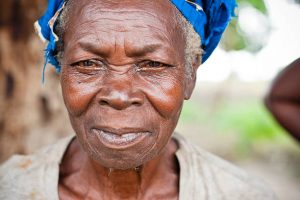The National Orientation in Collaboration with Coalition of the Societies for the Rights of Older Persons in Nigeria (COSROPIN) and I-CARE Initiative for the Aged at an event in Abuja on June 26, 2018, condemned the Abuse of elders in Nigeria by some Citizens.

Elder abuse is a global social issue which affects the health and human rights of millions of older persons around the world, and an issue which deserves the attention of the international community.
The most vulnerable amongst the elderly are the poor and disadvantaged ones who often times are on the receiving end. They are in the rural and urban areas, among educated and uneducated and in all the various ethnic groups in Nigeria. They are neglected and abandoned. They are subjected to all kinds of human degradation. They are deprived of respect and their rights. They are abused.
WHAT IS ELDER ABUSE?
Elder abuse definition adopted by the International Network for the Prevention of Elder Abuse (INPEA) states that “Elder abuse is a single or repeated act, or lack of appropriate action, occurring within any relationship where there is an expectation of trusts which cause harm or distress to an older person.” but this will depend on the frequency of occurrence, the duration, extremity, consequences and significantly, in the cultural context.
The abuse of the elderly is either an act of commission or omission and can be described as abusive, neglectful or exploitative, either intentionally or unintentionally but in most cases result in unnecessary suffering, injury, and pain, loss or violation of human rights and a decreased quality of life for the older person. It can be of various forms – physical, psychological or emotional, sexual, financial exploitation, cultural, structural and institutional or can simply reflect intentional or unintentional neglect.
Mr Eze Ajoku, President of COSROPIN, mentioned that some children abuse their parents by not supporting them.
Signs of Elder Abuse
Seniors experiencing abuse are often suffering in silence. If you notice changes in personality, behaviour, or physical condition, you should begin to ask questions. Some indicators that there could be a problem are:
- burns may be an indication of physical abuse, neglect, or mistreatment.
- Bruises around the breasts or genital area can occur from sexual abuse.
- Sudden change in alertness and unusual depression may be indicators of emotional abuse.
- Sudden changes in financial situations may be the result of exploitation.
- Bedsores, unattended medical needs, poor hygiene, and unusual weight loss are indicators of possible neglect.
- Behaviour such as belittling, threats, and other uses of power and control by spouses or those who should be in a position of trust are indicators of verbal or emotional abuse.
Ways to Prevent Elder Abuse
The following suggests ways by which we can prevent elder abuse in our community:
- Thinking about the role of transportation in reducing social isolation and adjusting systems so that seniors can continue to move throughout our communities as they age.
- Developing programs to educate families and professionals who work with older adults to understand the importance of preventing isolation, how to spot the warning signs of abuse, and what to do to address abuse or neglect.
- Subscription of regular doctor’s home visit to carry out Health assessment for the older adult to enable planning and implementation of a tailored and appropriate program to meet the requirements of the individual.
- The media is an important tool for mass education. The radio is a constant companion of the elderly, therefore it should air programs in the local language to address issues of elder abuse. Other tools of mass dissemination include the television through which programs of interest can be broadcast to the elderly.
We are advocate of elderly care in the society and we offer regular doctor’s visit to arrest any health issues early. Please care for the elderly.
For more information on a regular doctor’s home visit, please click here
![]()
